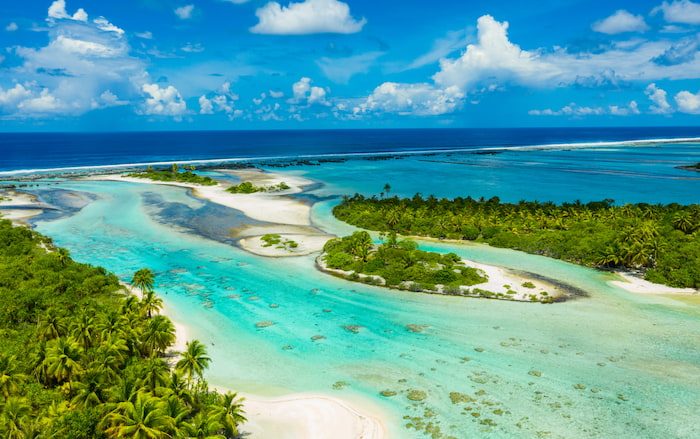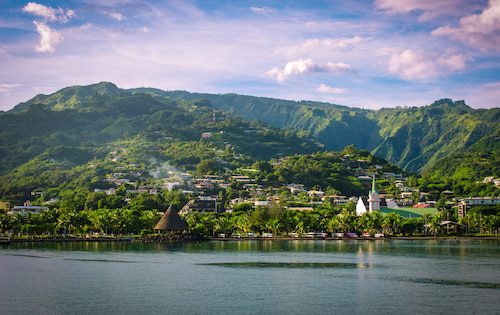
The Global Sustainable Tourism Council (GSTC) conducted a Destination Assessment of The Islands of Tahiti, French Polynesia, from August to December 2023. The Destination Assessment was led by Dr. Mihee Kang, GSTC Global Assurance Director, with the full support of Tahiti Tourisme.
The Islands of Tahiti (also known as French Polynesia), situated in the South Pacific, is famous for its picturesque landscapes and rich cultural heritage. Tahiti is the largest island in French Polynesia. The island features a mix of Polynesian and French influences, evident in its cuisine, music, and language. Papeete, the capital city, is known for its vibrant market, offering local crafts and foods.
The island’s landscape, characterized by volcanic mountains and lush rainforests, alongside its coral reefs and clear blue waters, creates a diverse environment that appeals to a variety of travelers.
GSTC Destination Assessment of The Islands of Tahiti, French Polynesia
 The GSTC Destination Assessment is designed to introduce The Islands of Tahiti to the core elements needed for the development of sustainable policies and practices by applying the GSTC Criteria.
The GSTC Destination Assessment is designed to introduce The Islands of Tahiti to the core elements needed for the development of sustainable policies and practices by applying the GSTC Criteria.
GSTC destination assessor, Dr. Mihee Kang completed this assessment in compliance with the GSTC Destinations Criteria (GSTC-D), the global standard for sustainable destinations. The results and recommendations of this assessment supply context and suggested direction on how Tahiti can Lead, Partner, or Influence stewardship support as it relates to the recommended priorities among the four pillars of the GSTC-D: Sustainable Management, Socio-Economic Sustainability, Cultural Sustainability, and Environmental Sustainability.
The assessment consisted of an extensive desktop analysis of current tourism activities and management approaches, and a 10 day on-site visit involving interviews with local authorities and stakeholders to verify evidence of compliance with the GSTC-D V2 Criteria.
 Key Takeaways
Key Takeaways
French Polynesia has taken commendable steps in the tourism industry by adopting a sustainable tourism development plan, “Fariiraa Manihini 2027” (FM27), to address the impact of climate change and other social and economic issues. This plan aims to limit the number of tourists in proportion to the local population and encourages the participation of all stakeholders. However, the country faces several challenges, including managing over 100 scattered islands, limited resources, and foreign tourists arriving by air or large cruise ships.
According to the assessment conducted, French Polynesia has well-established policies and practices that promote socio-economic sustainability. The management system for the destination was also found to be good. However, there is still room for improvement in policies and management practices to ensure cultural and environmental sustainability.
As the implementation of FM27 has just begun, we can be hopeful about ensuring sustainability in the future. The results of this destination assessment are expected to complement the established policies while compensating for any policy weaknesses.
“We thank the GSTC for this valuable assessment of our industry, which will serve as a benchmark. This phase will be completed by the results of the Tourism Carbon Footprint study, the Population Sentiment to Tourism survey and the Tourist Satisfaction survey, which will enable us to develop a comprehensive action plan for our sustainable tourism development path.” says Jean-Marc MOCELLIN, CEO of Tahiti Tourisme.
Read the full report of the Destination Assessment of The Islands of Tahiti, French Polynesia here.
More information about the GSTC Destination Assessment is available here.
Statements expressed in this announcement are presented for informational purposes only and should not be taken as an endorsement or recommendation by GSTC, unless clearly stated.




